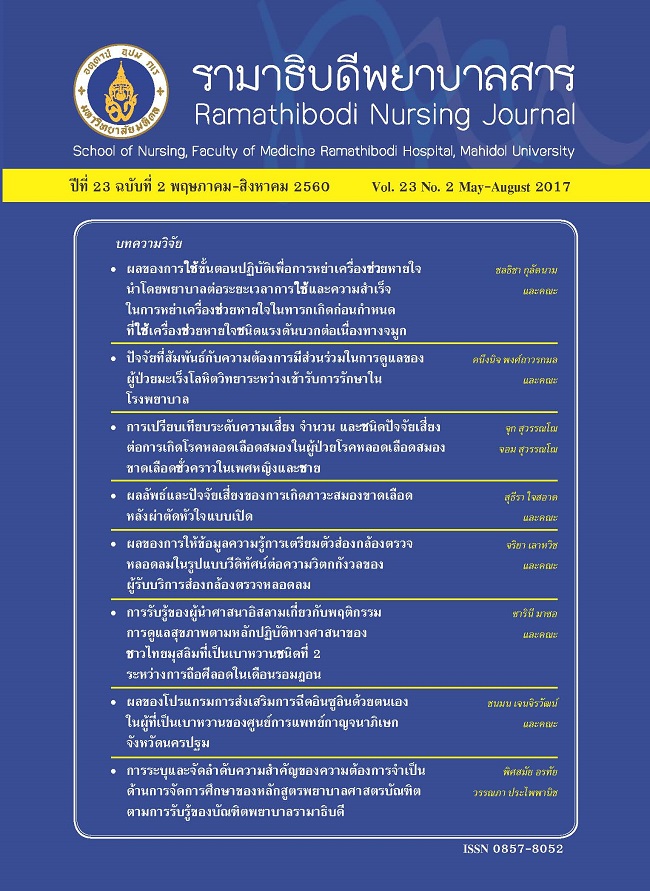Identifying and Prioritizing Educational Need for a Bachelor of Nursing Program as Perceived by Ramathibodi Nurse Graduates
Main Article Content
Abstract
The purpose of this research was to compare the gaps between current conditions and desired conditions for a Bachelor of Nursing program as perceived by Ramathibodi nurse graduates. The sample was one hundred and sixty nurse graduates in the year 2016. Data was collected using the Educational Needs Assessment questionnaire. Descriptive statistics and the Modified Priority Needs Index were used to analyze the study data. The results showed that the ranking of educational needs in a Bachelor of Nursing program from high to low were: 1) administration and management about sharing and updating information; 2) facility service and educational facility regarding dormitory environments; 3) academic support regarding communication and personal support of help seeking; 4) measurement and evaluation in regard to faculty feedback and factors supporting learning and teaching, especially for sufficiency of computers; 5) learning and teaching methods about workload of course subjects and personal development regarding students’ information technology competency; 6) course contents about management of course subjects should be relevant with students’ needs; and 7) faculty teaching, especially for interesting techniques in teaching. The findings in this study suggested that administrators who involve with the Bachelor of Nursing program should promptly establish information system, improve dormitory environments and personal support help-seeking system, encourage faculty feedback, support sufficient computers, assign appropriate workload of course subjects, develop students’ information technology competency, and promote interesting techniques in teaching.
Article Details
บทความ ข้อมูล เนื้อหา รูปภาพ ฯลฯ ที่ได้รับการตีพิมพ์ในรามาธิบดีพยาบาลสาร ถือเป็นลิขสิทธิ์ของวารสาร หากบุคคลหรือหน่วยงานใดต้องการนำทั้งหมดหรือส่วนหนึ่งส่วนใดไปเผยแพร่หรือเพื่อกระทำการใด ใด จะต้องได้รับอนุญาตเป็นลายลักษณ์อักษรจากรามาธิบดีพยาบาลสารก่อนเท่านั้น


